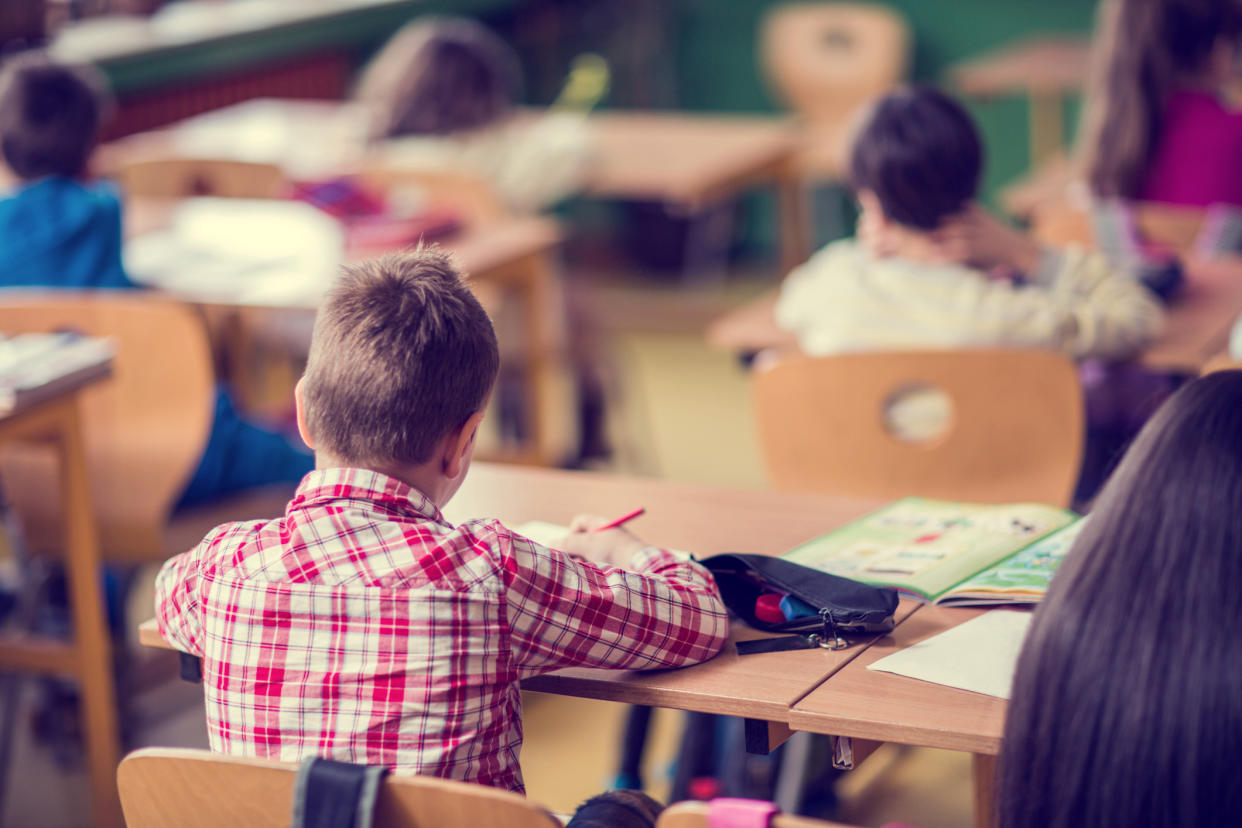Dad says 6-year-old daughter's homework on President Trump seems like 'indoctrination'

Politics is generally thought of as a topic that is for adults, but sometimes even little kids are brought into the mix — and one father isn’t happy about it.
Finn McCool, a Washington-based, self-described “conservative millennial,” shared on Twitter a photo of his first grader’s homework. It asked her to give the president a report card with a focus on a variety of different areas. “So my daughter brought this home from school,” he captioned the photo. “Seems like unusual questions to ask a 1st grader.” The questions on the first grader’s sheet included one asking “Would you vote for President Trump to be our president again?”
So my daughter brought this home from school. Seems like unusual questions to ask a 1st grader, especially the third question. Would they have asked the same questions while Obama was President? pic.twitter.com/SLlk9X02Xt
— Finn McCool (@the_color_finn) March 19, 2018
McCool added in follow-up tweets that his daughter knows who Trump is, “but we don’t talk politics with her because she’s 6.” Instead, he says, “she’s being taught about honesty, respect, kindness, responsibility, and hard work. Politics have no place at her age. Of course if she has questions I answer in terms and words she understands.”
“To ask these questions seems like indoctrination or propaganda research to me,” he continued. “How would a 6 year old form an opinion on Trump’s kindness? His ability to keep us safe? The MSM? Which has a clear bias against him and is pushing the gun control narrative. Parental influence?”
People had a lot of thoughts about the homework in the comments of his tweet.
Should these questions be asked to a first grader of any president? What is the point?
— Bill hogan (@billhogan20) March 20, 2018
Our voting system is a secret ballot. We have a right not to say who we support or not.
— Tracy Starrett (@tinkerthinker2) March 20, 2018
Outrageous! I was an elementary teacher for 25 years! Inappropriate doesn’t even begin to describe the wrong here ! Parents should show up at the next school board meeting. Pay a visit to the principal demanding purpose of this activity!
— Flower Girl (@Retiredtonature) March 20, 2018
McCool’s tweet raises a broader question: Should first graders and young children in general be taught politics at all? There’s “no real harm” in talking to kids about politics, other than the fact that they’re just going to copy your beliefs, attitudes, and behaviors, licensed clinical psychologist John Mayer, author of Family Fit: Find Your Balance in Life, tells Yahoo Lifestyle.
“Children view politics through the lens of their parents,” Mayer says. “Social cognition physiologically does not develop until early adolescence. This is a physical fact.”
Politics don’t actually make any sense or difference to a child at this age, Mayer says. “It doesn’t have any effect other than you are ‘brainwashing’ your child to follow your likes and dislikes in life,” he says. “It certainly is not teaching your child to form opinions or think for themselves.”
Ultimately, Mayer says that discussing politics with kids before they’re teens — when they can actually form an opinion on political affairs — is “needless.” “If you think you are developing free thought or social conscience — that just doesn’t happen,” he says.
Even if you do discuss politics with your young child, it’s likely that they’ll end up forming their own opinion about things down the road. “Many kids develop their own independence in thought and choices,” Mayer says. “That’s the wonderful resiliency of children.”
Read more from Yahoo Lifestyle:
Largest review of abortion in U.S. finds it to be ‘safe and effective’
Support builds for student who may be expelled over Planned Parenthood sticker
Follow us on Instagram, Facebook, and Twitter for nonstop inspiration delivered fresh to your feed, every day.

